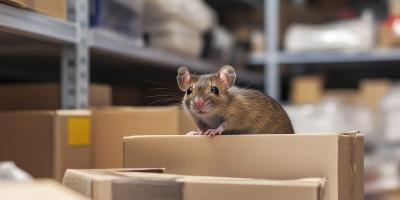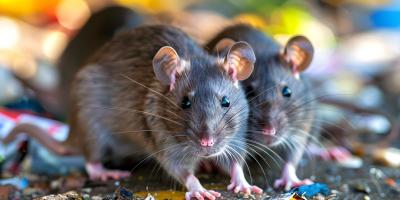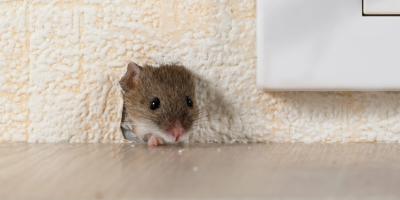5 Ways To Enhance Pest Management For Organic Facilities

The organic movement is powerful, and only growing stronger. According to the USDA, organic food sales accounted for over 4 percent of total food sales as recently as 2014, making the organic market a roughly $35 billion industry. That’s one serious market share, and with consumers willing to pay a little extra for goods they know are chemical and additive-free, it’s one more and more businesses are looking to enter.
However, with no insecticides, no chemicals, reduced genetic engineering, organic crops and commercial goods are significantly more vulnerable to pest invasions. For organic producers, this raises a complex challenge: how to best deal with pests without sacrificing their organic integrity. Luckily, there are 5 easy steps, you can take to keep your organic pest management running smoothly.
1. Be Proactive
Although true with almost all pest management, organic pest management is especially affected by good planning. The more proactive (and less reactive) you make your pest management strategy, the more effective you can expect it to be in the long-run. This means knowing how to identify problems and potential pest sources early, and having systems in place to contain the spread of pests before it becomes a major issue.
Careful monitoring and around-the-clock attentiveness to your products can help reduce pest issues long-term, while lax policies can almost always lead to major pest problems down the road.
2. Audit Often
The only way to know your proactive pest management strategies are working effectively is to track and record just about everything. That means audits - and plenty of them. Audits help you to measure the effectiveness of your pest control strategy over the long-term, meaning you can more easily determine what methods are working and which aren’t.
By allowing third-party auditors to inspect and verify your pest management strategies, you make it much easier to retain your organic certification year after year, and ensure transparency in your organic reporting processes if an issue arises.
3. Choose A Qualified Technician
While plenty of pest management specialists out there have the tools and resources to handle everyday pest problems, only those with specialized organic training know how to fully protect and preserve your organic integrity while offering effective pest control strategies.
When you look for a pest management pro to assess or treat your organic production facility, be sure to seek out one with a dedicated organic process, and experience working with organic facilities. That way, you won’t run into unforeseen issues due to inexperience with organic products.
4. Document Everything
The only way to prove your commitment to organic processes - and to keep your organic certification stable after a pest scare - is to produce documentation. Without thorough, copious note taking, there can be no right way to prove you have followed organic procedure during your pest removal process. Be sure to record everything, from the amount and type of substances used to remove pests (if any) to dates and times of visits from pest management specialists.
The more hard evidence you can produce when required, the easier it will be to maintain your organic standing when it comes time to renew or prove your certification.
5. Communicate Clearly
Too often, organic producers find themselves reeling after a nasty surprise from their pest management provider , especially after they find out the methods used to eliminate pests may not meet the requirements of their organic standards. Or, on the other hand, producers may be annoyed to learn that the organic pest strategy they agreed to wasn’t as effective as promised. Either of these can be a serious blow to small or large-scale organic producers.
The best way to ensure your pest management strategy has been both effective and compliant with your organic processes is to keep communication wide open throughout the pest removal process. The best pest management experts let you know exactly what they are doing and exactly what you can expect, reducing surprises and improving your satisfaction once your pest problem is completely taken care of.
Don’t Sacrifice Your Organic Principles for Pest Control
Organic production is a vast and growing market - and it’s all based on trust, Your customers trust you to deliver organic, chemical-free, and responsibly-produced goods, and pests shouldn’t force you to sacrifice that trust.
If you’re an organic producer struggling to effectively manage pests or would like your current program reviewed, request a free consultation today by our experienced organic professionals at JP Pest Services. We have years of experience creating and implementing programs for organic facilities.



